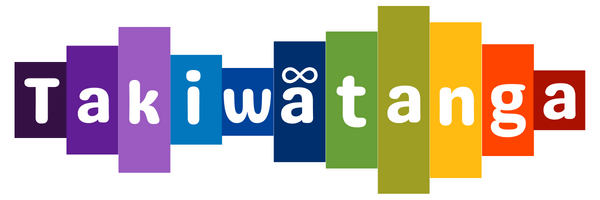Preparing Kids for the Real World with Temple Grandin and Debra Moore
During the Autism Parenting Summit, I watched Temple Grandin and Debra Moore present the topic Preparing your kids for the transition to the Real World.
The presentation is power-packed with information and here is my take.
To prepare your child for the transition to the real world, Temple and Debra have recommended that parents or carers of autistic kids should start exposing their kids to the following
- Daily living
- Personal Interests
- Managing Anxieties
Number 1. Daily Living
Temple said autistic kids should be exposed early in daily living activities. Early exposure to these activities will help build that muscle memory that will support these kids during their transition to the real world.
You can build muscle memory for these kids by letting them do simple tasks regularly. This is not rocket science. Start small and win big.
Simple tasks can be like making their own bed, tidying up their toys, or even brushing their teeth.
These tasks do not have to be done perfectly so the child won’t feel like he or she is doing work.
In order to attain mastery, one must do simple things over and over again. These kids will then get better as they execute these tasks.
You can also bring your child with you to shop for your groceries. Allow your child to help out in getting the food from the stand. While at the counter, let the child give the money to the cashier.
Another idea is, you can help your child open their own bank account or perhaps introduce commuting to him or her by visiting a nearby park or a friend using public transport.
If using public transport is overwhelming to your child, bring your child to a bus stop so he or she can see what a bus looks like and get familiar with a bus stop..
Plan out your activities in such a way so it will be a fun and enjoyable task and will not cause an overwhelming to the child.
Number 2. Interests and work.
Interest is a feeling of curiosity that enables someone to engage in a particular activity.
To know what a child’s interest would be. Expose the child to different potential interests like woodworking, painting, planets, or dinosaurs.
Debra said you will never know what interests your child if you did not take that extra step to expose your child to such activities.
Insider.com published an article about Walt Disney’s interest in drawing when he was seven. His drawings were sold to his neighbours. And his interests helped him build his enterprise.
Here’s an example.
If your child loves trains, cars, or even dinosaurs. Why not bring your child to a museum of his or her interests.
You can go and visit a museum as a family and make it an activity for all. If you experience pushbacks from your child.
Explain to your child that this will be a fun activity for the whole family. You can also reward your child for being amazing in handling overwhelm and anxiety. As a reward, there may be an ice cream break or a visit to a favourite park or zoo in the coming weekends.
Know what your child’s interest is to make learning easy and fun.
I am not saying that your child should follow the path of Walt Disney – why not?
What I am saying is, that personal interests can be a lifelong career too!
So how would you know your child’s interests?
Before you research potential interests for your child, you have to understand that people think differently.
Some people think of pictures like Temple Grandin, while Albert Einstein thinks in patterns and numbers.
If you understand how your child thinks, you can narrow down your options of potential interests for your child.
List down all potential interests for your child that you might want to explore. If your child loves art, bring him or her to an art gallery, a Saturday painting class, or maybe let the child do paper artwork.
Once you have identified your child’s interest, you can look for a group of people of the same interest. Then let the child join that group. Being with kids of the same interest can also help in learning, building confidence, and improving social skills.
So how about College or University?
Temple said the idea of going to a College or University is not for everyone. Though college or university is important, these schools are not set up for students with special needs. Know that some autistic kids may cope with the university setting while others don’t.
An autistic person can still be successful like those who own a fabrication business, a carpentry or trades business, or an art shop; this can go on and on and on.
There are plenty of jobs that don’t require a person to go to a university – and these jobs can work just right for the child.
Remember that being successful is not because you focus on what is missing but rather you focus on your abilities, and strengths, and enjoy doing what you do.
Number 3 Anxiety
Preparing a child for the real world can be challenging as anxieties and overwhelm will come with it. But if you know the triggers causing these anxieties and overwhelming for your child you can manage them beforehand so they won’t come knocking at your door.
Let’s use the train museum as an example.
Let’s say your child’s anxieties are triggered by a crowded and noisy place.
You can manage the trigger by calling the museum reception and asking them for the best time of the week to go there with less crowd. Explain why you were asking so they can give you the best options.
Once you are set for that family will visit the museum. Set the child’s expectations by showing images of the museum or letting the child listen to the sound of a train horn.
For extreme cases like experiencing anxieties with sensory sensitivity, an expert’s advice may be required.
Temple suggests moving away from medication as much as possible and only seeking a lower dosage in prescription. Only resort to medication if only there is really really really a need to do so.
When meeting with a doctor, don’t ask for a higher dosage of medication. Don’t even ask for an increase in dosage if the effect wears off. Live through the nerve cycle because you will get through it.
In a summary, to prepare your child for the transition into the real-life, you have to
First, expose your child to daily living activities. This will help them develop their mental muscles while young.
Let your child do small chores by making their bed, brushing their teeth, or cleaning up their toys.
You can also bring them with you when you go grocery shopping, have them open their bank account, and let them commute with you.
Second, expose your child to as many potential interests as possible. Don’t overwhelm the child, expose them to one activity at a time. Once you find out what interests your child. Find people with the same interests and let your child join that group. This will help your child with building their confidence and social skills.
And lastly, manage your child’s anxiety by setting expectations before you go on a family activity. If you are going to an activity, plan the best date and time to visit the museum.
If your child requires medication, seek an expert’s advice and only ask for a small dosage. Don’t ask to increase the dosage even if the medication wears off. Live through the nerve cycle because you will get through it.
These are my take on this presentation Preparing Kids for the real world by Temple Grandin and Debra Moore.




0 Comments